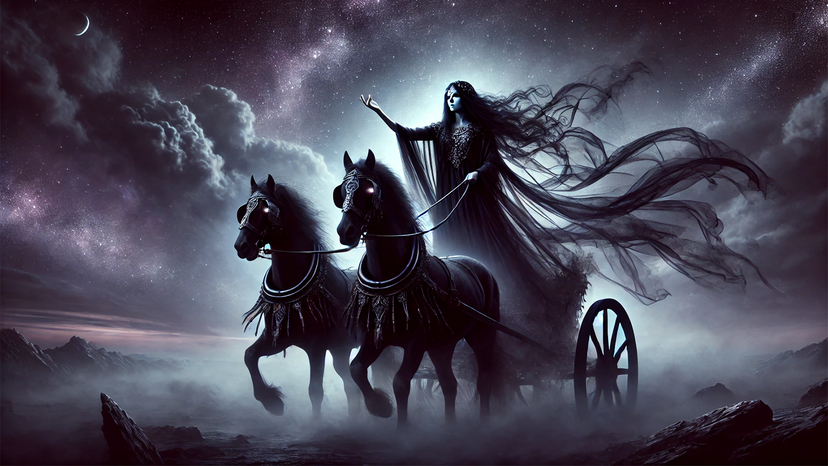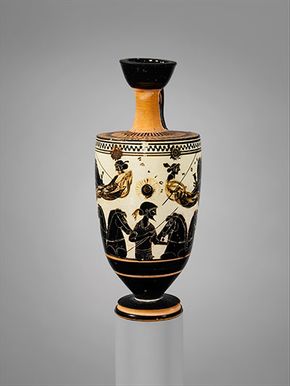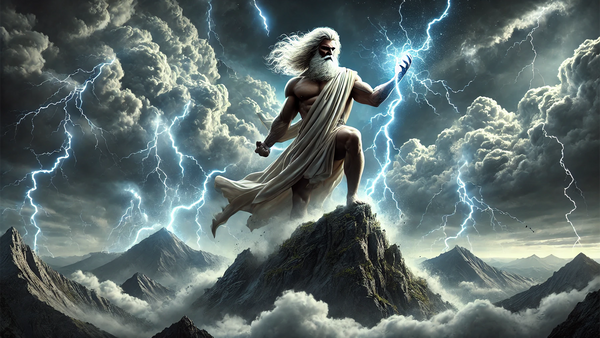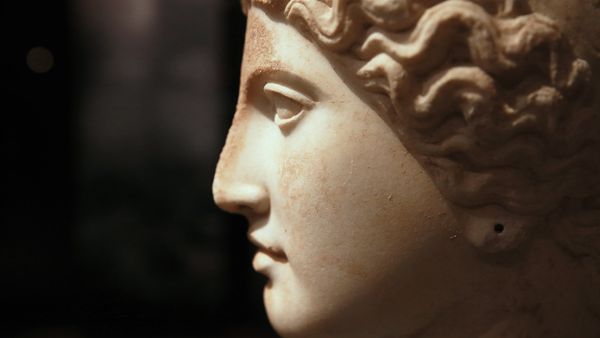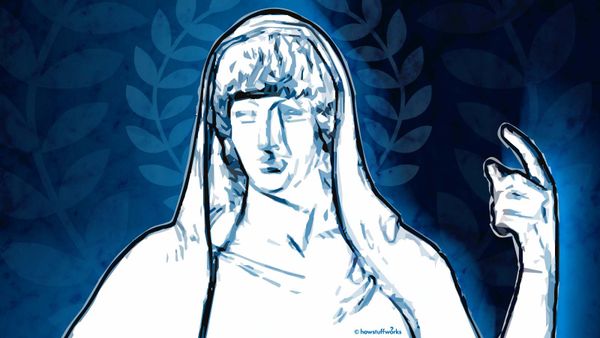Nyx (pronounced as "nooks," according to Turkeltaub) is one of the "primordial" gods — protogenoi in Greek — who were born of Chaos, the gaping void that existed before creation.
According to Hesiod's "Theogony," an epic poem dating from the eighth century B.C.E., Nyx's sisters and brothers were Gaia (Earth), Tartarus (the Pit), Eros (Love) and Erebus (Darkness).
Through a "union in love" with her dark brother Erebus, Nyx gave birth to two "luminous" offspring, Aether (Divine Air) and Hemera (Day). Then things took a turn.
In Hesiod's cosmology, Nyx next self-conceived a brood of baddies that included the Keres (spirits of Violent Death), Moros (Doom), Oizys (Misery), Apate (Deceit), Nemesis (Retribution) and the Moirai (the three "ruthless and avenging" Fates).
Hesiod attached negative descriptors to Nyx like "deadly Night" and "evil Night," but the ancient goddess was also the mother of more positive offspring like Hypnos (Sleep), the Oneiroi (Dreams), Geras (Old Age), Thanatos (Peaceful Death) and Philotes, which could mean either Friendship or Sex.
"It is a nocturnal activity," says Turkeltaub.
